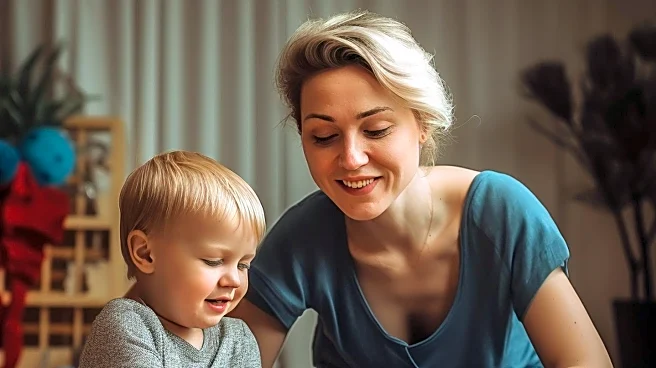What's Happening?
Intensive parenting, characterized by constant supervision and intervention in children's lives, is increasingly being scrutinized for its potential negative impacts. The concept of 'Lighthouse Parenting,' as advocated by pediatrician Kenneth Ginsburg and others, offers an alternative approach. This method encourages parents to act as guides, providing support when necessary but allowing children to navigate their own paths independently. The intensive parenting style, driven by a natural impulse to prevent children's suffering, can be exhausting for parents and detrimental to children's development. The article suggests that adopting a lighthouse approach can lead to more confident and self-reliant children.
Why It's Important?
The shift from intensive to lighthouse parenting could have significant implications for child development and family dynamics. Intensive parenting often leads to increased stress and isolation for parents, while potentially stunting children's ability to develop independence and problem-solving skills. By embracing lighthouse parenting, families may foster environments where children learn resilience and self-confidence. This approach could also alleviate parental stress, promoting healthier family relationships. As society continues to debate the best parenting practices, understanding the impacts of different styles is crucial for shaping future generations.
What's Next?
As the conversation around parenting styles evolves, more parents may begin to adopt lighthouse parenting principles. This shift could lead to changes in educational and childcare practices, emphasizing independence and self-guidance. Community support systems might also become more prevalent, offering resources for parents seeking to transition away from intensive parenting. Additionally, further research into the long-term effects of different parenting styles could inform public policy and educational programs, promoting practices that support healthy child development.
Beyond the Headlines
The debate over parenting styles touches on broader cultural and societal issues, including the role of community in child-rearing and the pressures faced by modern parents. Intensive parenting reflects societal expectations for parental involvement, which can be influenced by economic and social factors. As more parents consider alternative approaches, there may be a cultural shift towards valuing independence and resilience in children. This could lead to changes in how society views success and achievement, prioritizing personal growth over external validation.








